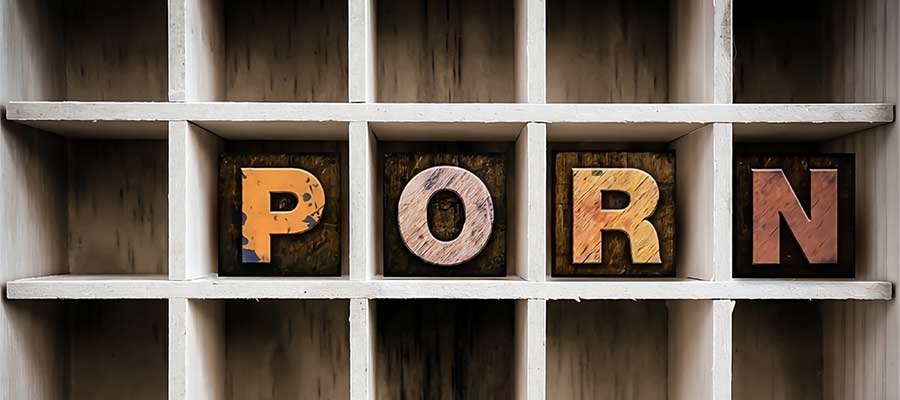When you’re on the path to recovery from sex addiction, understanding the landscape of your journey is critical. This includes knowing the potential pitfalls and how to navigate them. One of these challenges is the risk of relapse. A sex addiction relapse prevention plan is not just a safety net; it’s an essential map that guides you through the rough terrain of recovery.
Relapse is a common part of many addiction recovery processes, including sex addiction. It involves returning to sexual thoughts, behaviors, or patterns that you’ve been trying to change or stop. Recognizing that relapse can be a part of your recovery journey allows you to approach it with understanding rather than judgment.
It’s easy to underestimate the complexity of sex addiction. It’s an intricate web of emotional, psychological, and sometimes physiological factors. Understanding relapse means acknowledging that this addiction is not solely about physical urges; it’s also about emotional needs and coping mechanisms.
The fear of relapse should not dominate your recovery journey, but awareness of its possibility is a powerful tool. By understanding the nature of relapse, you can be more compassionate with yourself and more strategic in your prevention efforts.
The Importance of a Relapse Prevention Plan
A relapse prevention plan is a crucial element of successful recovery. It’s a proactive approach that equips you with the knowledge and skills to prevent a slip from becoming a full-blown relapse. A well-designed plan is personalized, addressing your unique triggers and challenges.
The significance of having a plan lies in its ability to offer you a structured response when faced with high-risk situations. It’s far easier to navigate choppy waters with a compass and map than to sail blind. The same goes for recovery; a relapse prevention plan is your navigation tool.
Moreover, a prevention plan is a commitment to yourself. It’s a tangible expression of your dedication to sustain the changes you’ve worked hard to achieve. It’s a reminder that you are in control and have the resources to maintain your recovery.
A robust sex addiction relapse prevention plan comprises several key components. These elements work together to create a comprehensive strategy tailored to your individual needs and circumstances.
First, your plan will outline strategies for identifying and managing triggers. This includes a clear understanding of what situations, emotions, or thoughts might lead to relapse and how to navigate them effectively.
Second, it will include a set of coping mechanisms and healthy alternatives to replace the addictive behaviors. These are your go-to actions that will help you handle stress, anxiety, or other emotions that used to lead to addictive behavior.
Finally, your plan should incorporate a support network, a structured daily routine, self-care practices, professional help, and methods for accountability and tracking progress. All these components work synergistically to strengthen your resolve and support your journey toward lasting recovery.
Another important thing to do is identifying what triggers your addictive. Triggers can be anything from stress, loneliness, certain social situations, or even specific times of the day. It’s crucial to reflect on your past experiences to pinpoint these triggers.
Once identified, the next step is to understand the high-risk situations that may increase the likelihood of a relapse. These are scenarios where your triggers are present, and your ability to resist the urge to engage in addictive behavior is tested. Recognizing these situations helps you to avoid them or prepare coping strategies in advance.
It’s also important to acknowledge that triggers and high-risk situations can evolve over time. What once was a trigger may lose its power, or new triggers may emerge. Constant vigilance and self-awareness are key to staying ahead of these changes. This includes having a range of coping mechanisms at your disposal. These are the tools you’ll use to handle the emotional and psychological pressures that once led to addictive behavior. Coping mechanisms might include mindfulness, exercise, journaling, or engaging in a hobby.
In addition to coping strategies, identifying healthy alternatives to the addictive behavior is essential. For instance, if loneliness triggers your addiction, you might schedule time with friends or engage in community service as an alternative. If stress is a trigger, practicing relaxation techniques or taking on a manageable amount of responsibility could be your alternative.
The goal is to replace the harmful patterns with positive ones that contribute to your well-being. These alternatives should not only distract you from the urge to engage in addictive behavior but also enrich your life, making relapse less appealing.
Building a Support Network as a Sex Addiction Relapse Prevention Plan
A reliable support network is one of the cornerstones of a strong sex addiction relapse prevention plan. This network can include friends, family, therapists, support groups, or any combination of individuals who understand and support your journey to recovery.
This support network offers emotional backing, practical advice, and a sense of accountability. When you’re surrounded by people who care about your well-being and are invested in your success, you’re less likely to feel alone in your struggles.
Your support network can provide valuable feedback and help you stay on track. They can celebrate your victories with you and help you navigate setbacks, ensuring you don’t have to manage your recovery in isolation.
Additionally, a well-structured daily routine provides a framework that supports your recovery goals. It reduces idle time that could lead to temptation and ensures that your days are filled with purposeful, fulfilling activities.
Your daily routine should balance work, personal time, and recovery-related activities such as therapy sessions or support group meetings. It’s also wise to include regular exercise, as physical activity can be a powerful tool for managing stress and maintaining overall well-being.
Structure doesn’t mean rigidity, though. It’s important to allow for flexibility in your routine to accommodate the unpredictable nature of life. The key is to have a solid foundation that keeps you grounded and focused on your recovery.
The same goes for self-care practices, these are an important part of any sex addiction relapse prevention plan. These are activities that nourish your body, mind, and spirit, promoting overall health and well-being. Self-care can take many forms, from ensuring you get enough sleep and eat a balanced diet to engaging in meditation or spiritual practices. It’s about doing things that make you feel good and help you cope with the stresses of everyday life.
Regular self-care is not selfish; it’s a necessary component of staying healthy and maintaining the strength to resist the urge to relapse. It ensures that you are taking care of your basic needs, which can often be neglected in the throes of addiction.
With all these different strategies, accountability truly is a key aspect of preventing relapse. It involves taking responsibility for your actions and being honest with yourself and others about your struggles and successes. One way to stay accountable is through regular check-ins with your support network. These check-ins provide an opportunity to discuss challenges, celebrate progress, and adjust your prevention plan as needed.
Additionally, tracking your progress can be incredibly motivating. Whether it’s marking off days on a calendar, keeping a recovery journal, or using an app designed for addiction recovery, seeing how far you’ve come can encourage you to keep going.
Tips for Maintaining Long-Term Recovery
Maintaining long-term recovery requires ongoing effort and vigilance. Here are some tips to help you stay on track:
- Continuously evaluate and update your relapse prevention plan as your needs and circumstances change.
- Stay engaged with your support network and seek out new connections that reinforce your recovery goals.
- Keep learning about sex addiction and recovery to deepen your understanding and find new tools to aid your journey.
- Celebrate your milestones, no matter how small they may seem. Each day of recovery is an achievement.
Remember, recovery is a marathon, not a sprint. Patience with yourself and the process is crucial.
Developing and adhering to a sex addiction relapse prevention plan is a dynamic and deeply personal process. It requires honesty, dedication, and a willingness to reach out for help when needed. You have the strength and resilience to overcome the challenges of recovery and build a fulfilling life free from the bonds of addiction.
Remember, you’re not alone in this journey. Successful Addict offers various programs to assist you in your sex addiction recovery. Take that first step today and begin building the foundation for a lifetime of recovery and well-being.






